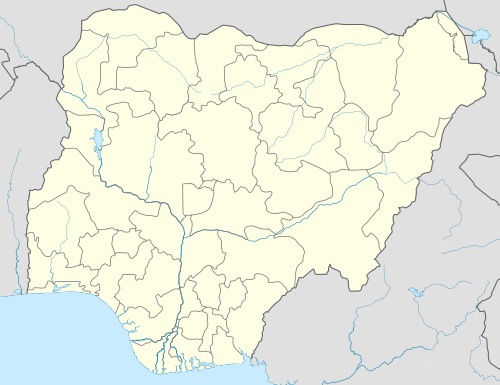Akwanga
Akwanga is a Local Government Area in Nasarawa State, Nigeria. Its headquarters are in the town of Akwanga.
Akwanga Kpange Mada Kasa | |
|---|---|
LGA and town | |
| Nickname(s): AK | |
| Motto(s): Mada Sei Gir | |
 Akwanga Location in Nigeria | |
| Coordinates: 8°55′0″N 8°23′0″E | |
| Country | |
| State | Nasarawa State |
| Headquarters | Akwanga Town |
| Time zone | UTC+1 (WAT) |
It has an area of 996 km² and a population of 513,930 at the 2006 census. The postal code of the area is 960.[1]
Languages
Plateau languages are spoken in and around Akwanga. Plateau language groups surrounding Akwanga town, listed clockwise, are Koro, Hyamic, Ndunic, Alumic, Ninzic, Eggonic, and Jilic.[2]
Education
Akwanga is considered the center of education in Nasarawa state for its wide array of primary, secondary, and tertiary institutions. Akwanga is home to the prestigious Shepherd's International College, Hope Academy Secondary School, the private co-educational, Christian boarding school; College of Education; Hills College of Education; NACABS Polytechnic; and School of Health, amongst many others. Akwanga has the highest number of schools in Nasarawa State.
References
- "Post Offices- with map of LGA". NIPOST. Archived from the original on 7 October 2009. Retrieved 2009-10-20.
- Blench, Roger M. 2018. Nominal affixes and number marking in the Plateau languages of Central Nigeria. In John R. Watters (ed.), East Benue-Congo: Nouns, pronouns, and verbs, 107–172. Berlin: Language Science Press. doi:10.5281/zenodo.1314325
